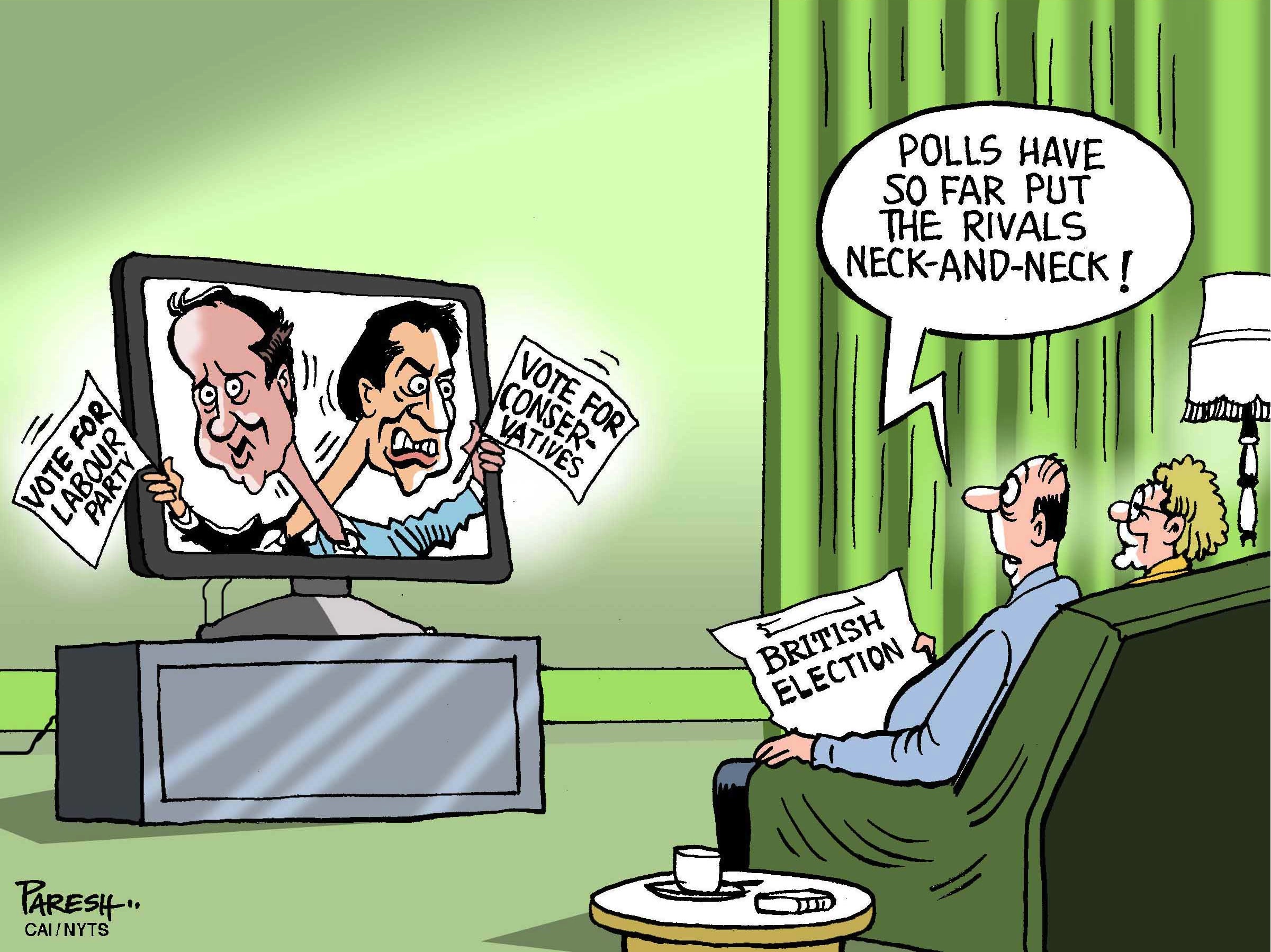The British general election early next month may prove as significant for Europe, and even for the United States, as for Britain itself. The British electorate must make an unprecedented choice among Conservatives, Labour, Liberal Democrats, Scottish Nationalists, UK Independents (UKIP) and Greens, to name only the parties likely to have any influence on the outcome.
This dazzling array of political choice, to voters collectively accustomed for nearly a century only to Tories, Liberals, Labour and an unelectable left, offers a conundrum to those who would forecast the outcome this year. As of this writing, the Conservatives and Labour are so closely matched in voter opinion as to make virtually no difference. Either, winning by the minuscule margins suggested today, is almost certain to need a coalition partner to construct a government. The candidates for that role are the Liberal Democrats, who shared rule with the Conservatives in the present outgoing government, but who have always harbored leftist sympathies and would shock few if they joined a new government with Ed Miliband's reformed Labour Party.
However what British commentators find more intriguing is the possibility that the Scottish Nationalists, newly led by Nicola Sturgeon, could come in third (or even second, but without a result large enough to make them the official opposition). It nonetheless is now the third largest party in Britain, with 110,000 signed-up members, and would therefore have a powerful claim to a coalition position, and be strong enough to impose its mark on new government's policies. Scotland in that case might have lost its bid for independence last year, but would have irresistible influence in a coalition government.


















With your current subscription plan you can comment on stories. However, before writing your first comment, please create a display name in the Profile section of your subscriber account page.